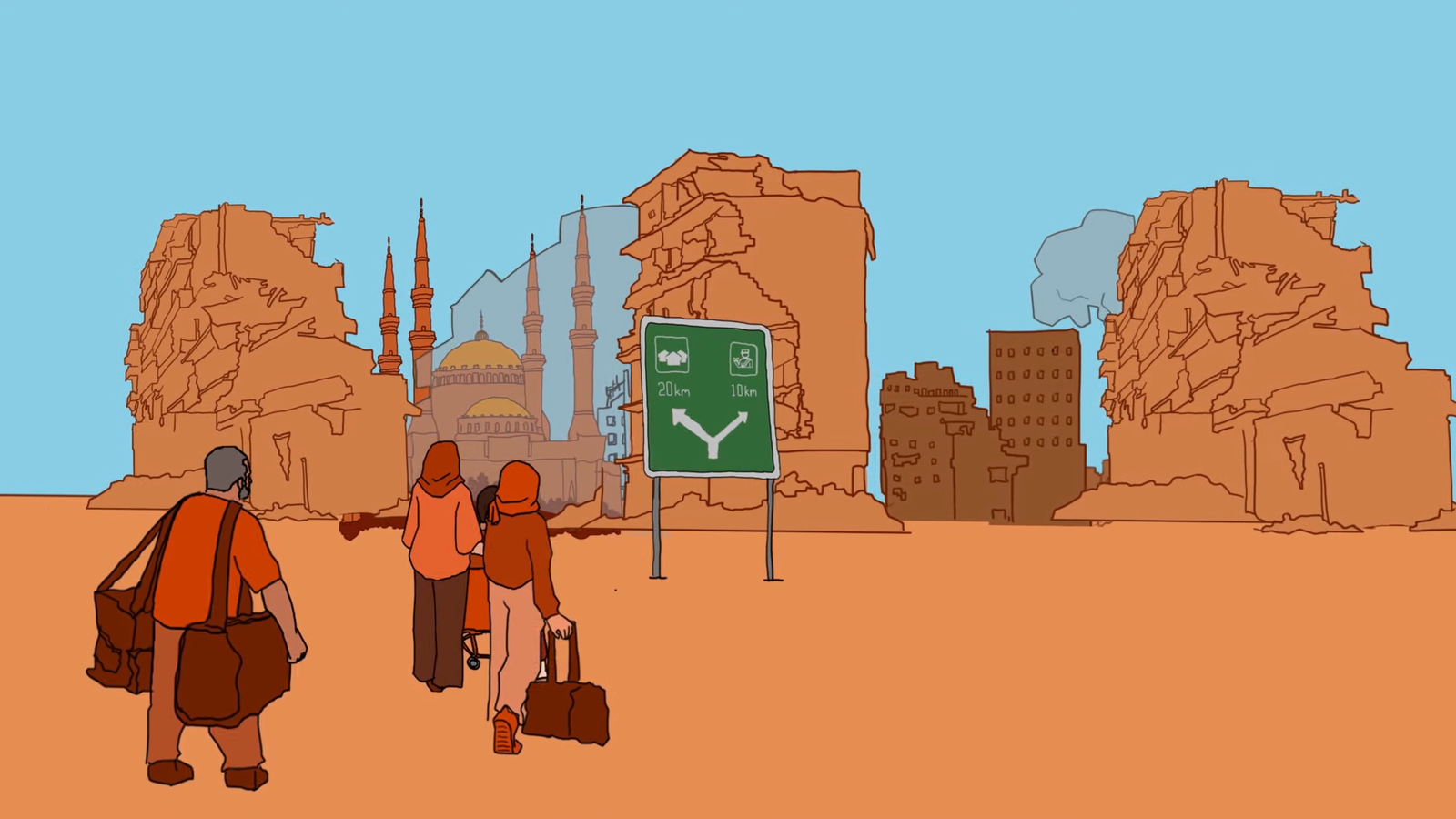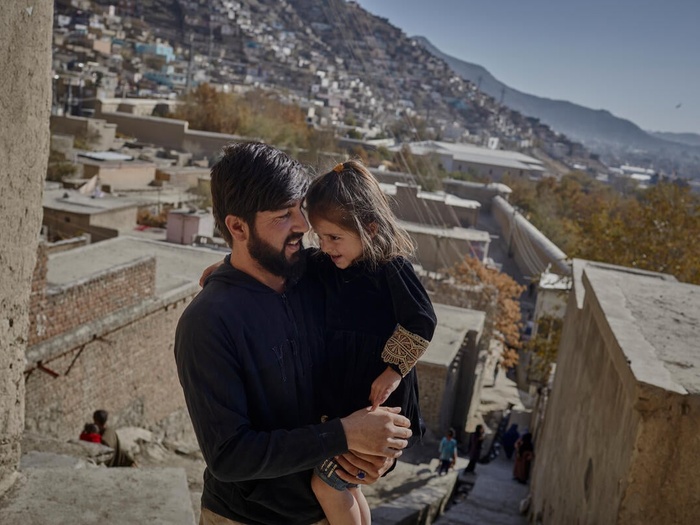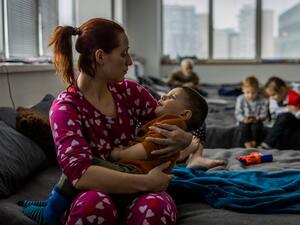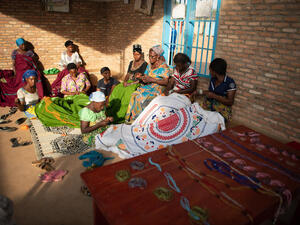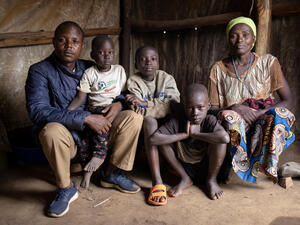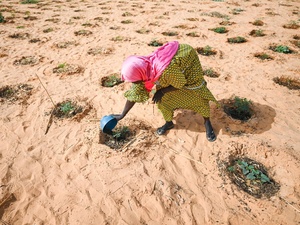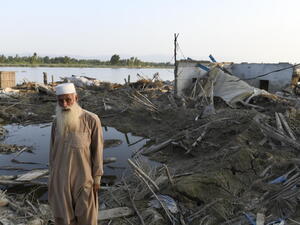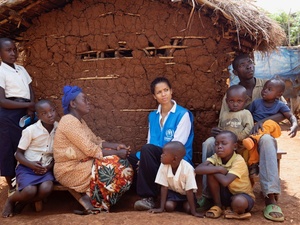Internally Displaced People
Internally Displaced People
At UNHCR, we have been supporting IDPs since the 1970s.
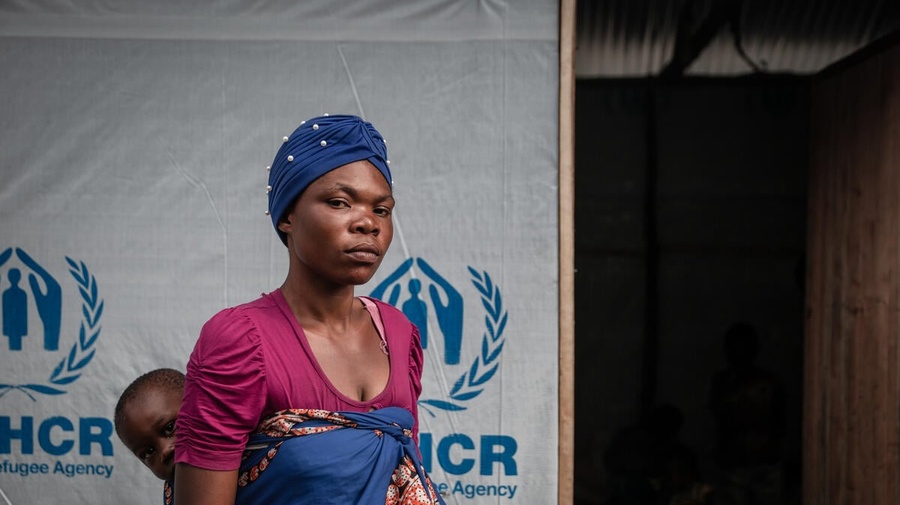
Neema fled her home in the Democratic Republic of the Congo after a volcano erupted. She and her children had to sleep outdoors until UNHCR was able to deliver shelters.
What is internal displacement?
Internally displaced people, referred to as IDPs, have been forced to flee their homes by conflict, violence, persecution or disasters, however, they remain within the borders of their own country.
There were 67.8 million internally displaced people at the end of June 2025, the most recent reporting period. They accounted for the majority of the world's forcibly displaced population (58 per cent).
IDPs are among the most vulnerable people in the world, and many are trapped in protracted displacement for years or even decades. Uprooted from their homes and livelihoods, they often face dangerous conditions and continue to face risks even after fleeing for safety. National governments have the primary responsibility to protect and assist their displaced citizens and residents, but they may be unable or unwilling to do so.
When IDPs do settle, places of refuge may lack adequate shelter, food, clean water or health care. Even where such services exist, the sudden influx of people can overwhelm them. It can be difficult for displaced people to find work, leaving them without an income to support themselves and their families.
The United Nations Guiding Principles on Internal Displacement describe internally displaced persons (IDPs) as: "persons or groups of persons who have been forced or obliged to flee or to leave their homes or places of habitual residence, in particular as a result of or in order to avoid the effects of armed conflict, situations of generalized violence, violations of human rights or natural or human-made disasters, and who have not crossed an internationally recognized state border."
Learn more: The United Nations Guiding Principles on Internal Displacement
A refugee is someone who is outside their country and cannot return without risking their life or freedom due to conflict or persecution. Refugees are entitled to certain rights and protections under international law.
An IDP has been forced to flee their home to escape conflict, persecution or disasters, however, they have not crossed an international border and remain inside their country. Their national government is responsible for their protection. They should be afforded the same rights and freedoms as citizens and habitual residents of their country.
Displacement can often be a continuum: A person displaced within their country (an IDP) may cross an international border to seek safety once they are able to do so, or if the situation further deteriorates, at which point they may become a refugee. Likewise, a refugee may also cross back into their country but not return to their area of origin and so be classified as an IDP.
How does UNHCR help IDPs?
UNHCR exists to protect and assist everyone who has been affected by forced displacement, including internally displaced people.
At UNHCR, we have been supporting IDPs since the 1970s. We deliver life-saving assistance to keep them safe and help national governments support IDPs so they can realize their rights and find a safe place to call home.
UNHCR works with partners and other UN agencies to ensure that IDPs are protected and supported. In all our work, we aim to listen to and work with the affected community. We prioritize interventions to prevent, respond to, and mitigate their most urgent and immediate protection risks and needs, including protection against sexual exploitation and abuse, sexual and gender-based violence and child protection. We also bring our longstanding expertise in shelter and camp management to IDP responses, working to ensure displaced people have a safe place to stay can access local services, while ensuring their rights are protected.
Case study: Abdul, Afghanistan
Abdul* and his family were forced to flee their home in northeastern Afghanistan to escape conflict in the area. He is pictured with his four-year-old daughter in Kabul, where they sought refuge.
A rocket hit the house and everything turned to dust.
"There is no one left in the area, everyone fled. My parents are traumatized and still haven’t come out of the shock,” he says.
The family received cash assistance for rent as well as food and non-food items from UNHCR. "When we came here, we had nothing so the assistance from UNHCR was a big help."
*Name changed for protection reasons
Resources
The IDP Protection Expert Group – IPEG
The IPEG engages at a senior level with UN leadership and government officials on key protection challenges through country visits, as well as globally through advocacy and communications.
- Visit the IPEG web page
The Global IDP Advisory Group
The Global IDP Advisory Group is a group of leaders from internally displaced and affected communities that contributes to the work on prevention, protection and solutions for internally displaced people.
- Visit the Global IDP Advisory Group web page
UNHCR policy and guidance
Global report on law and policy on internal displacement
This report presents global and regional overviews of key law and policy developments related to prevention, protection and solutions for IDPs.
2025 Cross-regional forum on implementing laws and policies on internal displacement
In October 2025, UNHCR and the Special Rapporteur on the Human Rights of Internally Displaced Persons, in collaboration with the IDP Protection Expert Group, partnered with the International Institute of Humanitarian Law to convene a peer-to-peer exchange in Sanremo, Italy, for local and subnational government officials from 9 countries to advance the implementation of laws and policies on internal displacement.
Useful links
IDP Essential Frameworks
Protection and solutions
- UNHCR Institutional Plan on Solutions to Internal Displacement
- Handbook on Internal Displacement for National Human Rights Institutions / French version / Spanish version
- Handbook for the Protection of Internally Displaced Persons
- Durable Solutions Preliminary Operational Guide
- IASC Principals Centrality of Protection in Humanitarian Action
- IASC Policy on Protection in Humanitarian Action
- IASC Framework for Durable Solutions for Internally Displaced Persons
- Handbook on Internal Displacement for Parliamentarians
Please consider donating today
Your gift can help protect someone forced to flee their home due to conflict or persecution.


